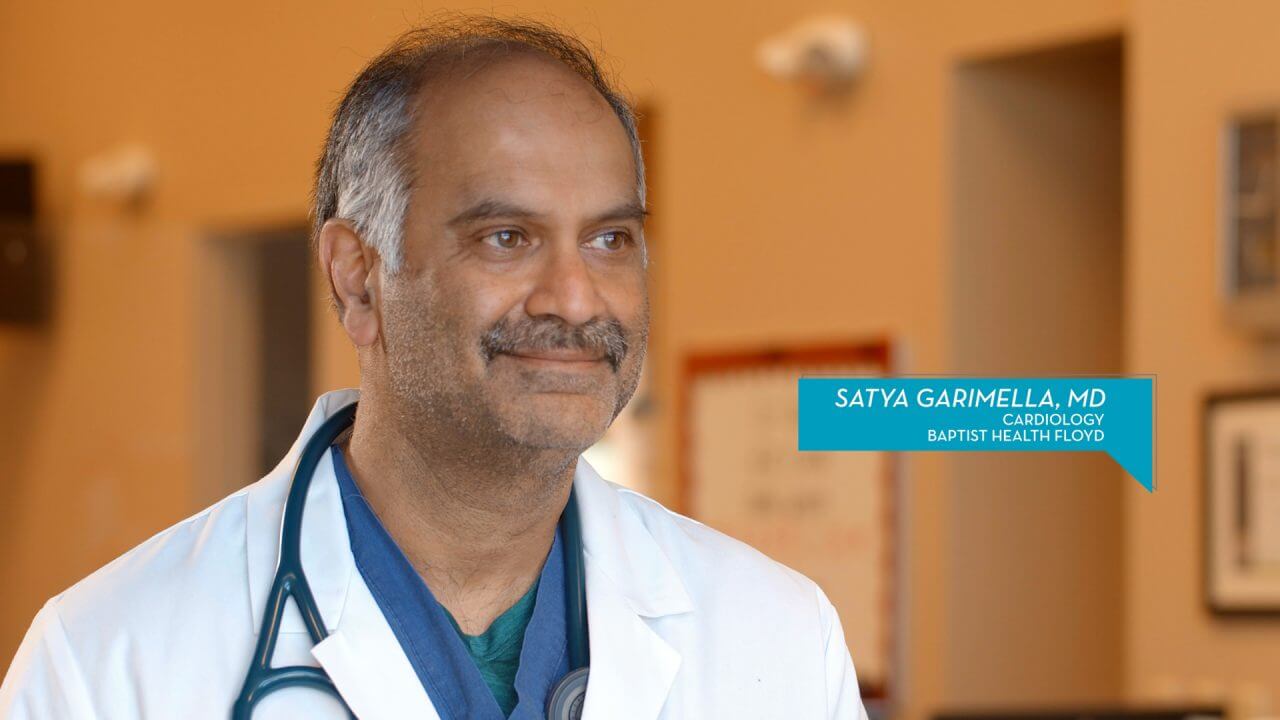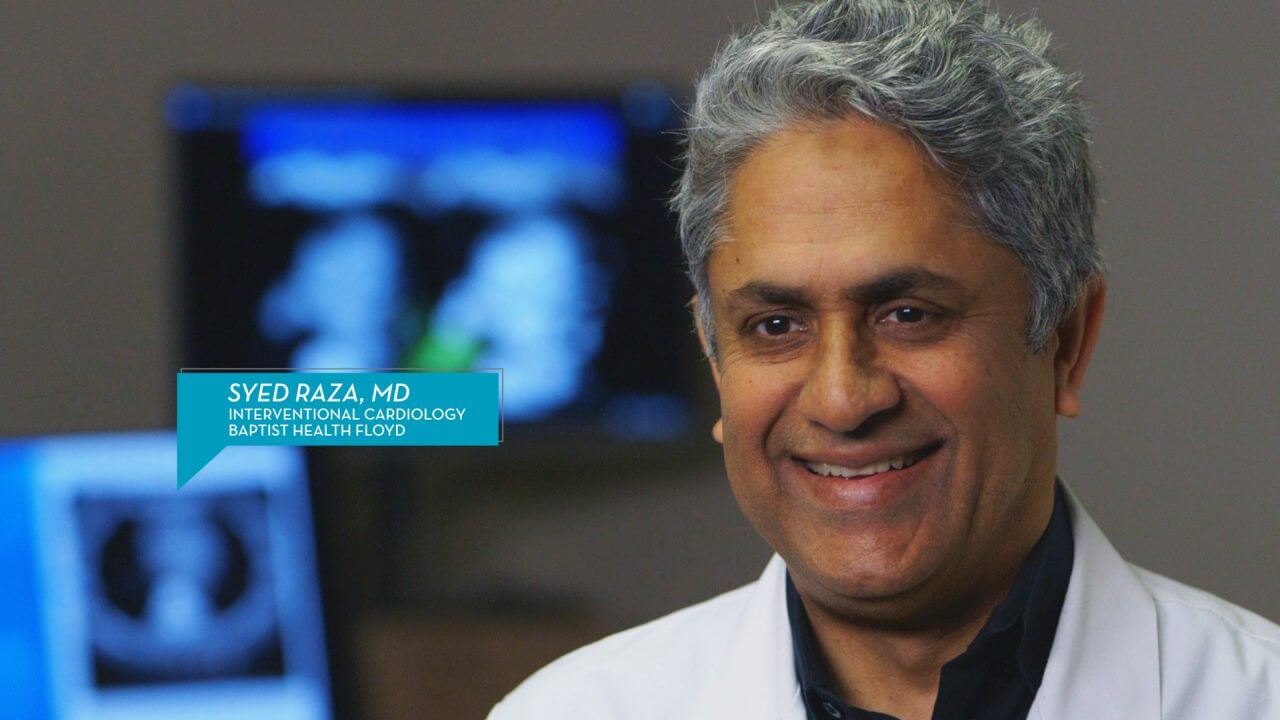When to See a Cardiologist – Southern Indiana
Baptist Health Floyd: When to See a Cardiologist
Cardiologists treat conditions related to the heart and blood vessels. Learn more about what a cardiologist treats, when to see one, and why, from Baptist Health.
When to See a Cardiologist – Southern Indiana HealthTalks Transcript
Matthew Keith, MD, PhD, Interventional Cardiology:
A cardiologist helps prevent, treat and diagnose three main conditions related to the heart: those specific to the heart arteries, with treatment of blockage; structural cardiomyopathy; and electrical problems, such as arrhythmia, as well as other things, such as heart failure.
People would see a cardiologist if they’re having difficulties breathing, like shortness of breath; people with chest pain; also people with specific risk factors for cardiovascular disease, including those people who smoke or have diabetes who would be at very high risk for development of cardiovascular disease in general; those with simple high blood pressure that’s been very difficult to treat; those who have a more complicated past medical history, as well as significant family history of cardiovascular disease. We can do a lot of things in life, but we can’t escape our genetics.
Prevention of cardiovascular disease is extremely important. It is arguably our most important job. The primary thing that you can do to prevent it is to be seen early — have screening tests, such as your cholesterol checked, maintain your blood pressure in normal limits, and be treated early to understand if you’re at increased risk related to your family history of coronary disease or stroke, as well as to maintain a nonsmoking status.
Being heart smart, obviously, is a moniker to concentrate on arguably the most important muscle in the body, to take care of it. We get one of them, and it needs to last a lifetime.



